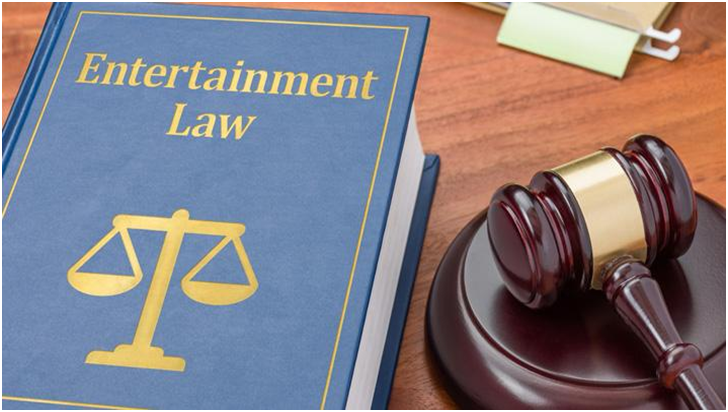There are a variety of benefits of hiring an entertainment lawyer. If you want to protect your original works in the media industry, a lawyer’s assistance can be valuable.
An entertainment attorney can provide legal assistance to individuals or businesses that are involved in the industry, including television, film, radio, recording, theater, publishing, and digital media. The world of media can be extremely diverse. However, entertainment law generally can be divided into two primary fields: litigation and transactions. Los Angeles entertainment lawyers focus their practices on a diverse number of areas that fall within these broad categories.
Choose an Entertainment Lawyer in Los Angeles According to Your Niche
Anyone who decides to become an entertainment attorney generally needs to be well-versed in many legal fields due to the wide variety of potential problems and opportunities that the entertainment world presents.
Lawyers who regularly represent actors and musicians generally need to know the ins and outs of contracts, but they also need to know the details of intellectual property law to protect their clients. Attorneys who represent film producers generally need to know the basics of distribution rights, too. Networks can turn to attorneys to help protect themselves from costly lawsuits.
Within these two categories are multitudes of possible job responsibilities for an entertainment attorney. Possible tasks could include talent contracts and agreements; labor negotiations with union teams within the television, movie, or theater context; rental of equipment and spaces for the performing arts; licensing and regulatory affairs; copyright protection; and production liability concerns. The expansion of digital media has also opened up an entirely new field of potential entertainment law concerns.
Transaction-Based Entertainment Law
Of the two basic categories of entertainment law, transaction law generally requires entertainment lawyers to focus on contracts and deals. Attorneys in this capacity could be involved in drafting contracts for their clients, negotiating better agreements, or ensuring that agreements are properly enforced. For matters involving litigation, attorneys can defend their clients from lawsuits, as well as file and pursue lawsuits on their clients’ behalf.
Many entertainment attorneys who are fortunate enough to land positions in this highly competitive field often begin their careers as associates at well-known law firms.
In the United States, the majority of attorneys who practice entertainment law are concentrated in Los Angeles and New York, which are the two cities that are responsible for the majority of film, television, music, theater, and publishing productions in the country.
Areas of Focus for Intellectual Property Lawyers
Intellectual property largely involves three areas: copyright, patent, and trademark.
- Copyright
Copyright refers to the legal right over intellectual property that the creator or owner of an original work possesses. The people who use another party’s protected intellectual property are required to have express authorization from the creators or owners of the content. Copyrights in the media industry help creators to further their business by allowing them to monetize their intellectual property through licensing agreements.
- Patents
If someone is involved in creating a technical invention, then they can seek patent protection for their intellectual property. A patent gives the holder the authority to prevent others from using their intellectual property for commercial gain to the patent holder’s detriment. Patents are exclusive rights that are given to an inventor, and that includes decisions about whether third parties may use it.
- Trademarks
A trademark is used to identify goods or services, and it guarantees the owner the exclusive right to use the mark, protecting the trademark owner from third parties’ unauthorized use of the trademark. A person can authorize others to use their trademark in return for monetary compensation. Los Angeles Trademark lawyers can provide valuable guidance to business owners and enterprises.
Benefits of Trademark Registration
Only the trademark owner can use the intellectual property and exploit it for commercial gain. When a mark is properly registered and monitored, the risk of misuse, copying, or imitation can be significantly reduced. The asset holder may take legal action against imitators and misusers.
The risk of an identical or similar trademark being used and registered by a third party can be significantly reduced. Investment in advertising can be a long-term benefit to a company, and it can be a solid foundation for building a brand. This is why hiring a trademark lawyer for your enterprise can be so important.
- Brands
Branding allows a business to differentiate its products or services from others within the market.
- Industrial designs
A trademark or entertainment lawyer can help you register your technical design, as well.
- Geographical indications
These are signs that businesses may use to differentiate products that have a specific geographic origin that makes them possess particular characteristics or qualities.
- Trade secrets
Trade secrets are a type of intellectual property that protects confidential information, which may be essential to a business’s success.
Should I Hire an Intellectual Property Lawyer?
Patents, copyrights, and trademarks can be important to anyone who may be considering setting up a business or functioning in a sector related to creation and entertainment. These are very important concepts that help intellectual property owners protect their rights, and a trademark lawyer Los Angeles trusts can provide valuable guidance to help your business.
Properly protecting intellectual property can be challenging to manage, but it can also generate innumerable benefits for companies, allowing brands to differentiate their products or services within the market and monetize their assets. The work focuses on protecting and defending IP owners rights.


Comments are closed.